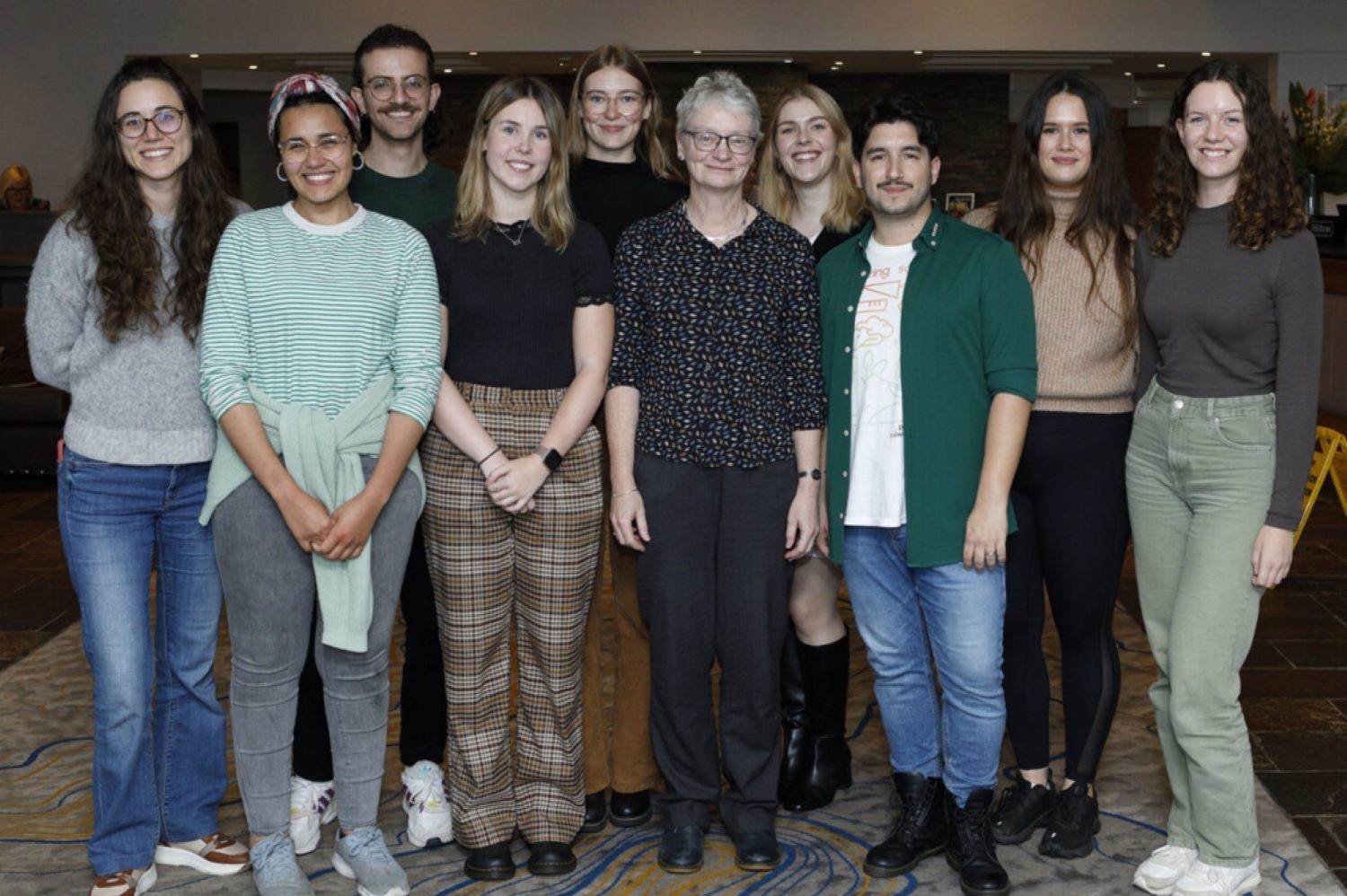The Williams group is interested in how oligodendrocytes and myelin are maintained in the brain and spinal cord in health and how this changes in disease, with a focus on human neuropathology, particularly multiple sclerosis and cerebral small vessel disease.
In the brain and spinal cord, nerves are covered by an insulating sheath of membrane called a myelin sheath. This allows fast transmission of electrical impulses and protects and maintains the nerve. In multiple sclerosis (MS), patches of demyelination occur, where these myelin sheaths are damaged and stripped off the nerve. This causes neurological symptoms such as paralysis, sensory changes and blindness. Replacement of these myelin sheaths (remyelination) can happen in MS, which can restore nerve function. This is generally inefficient, and often a scar forms instead, causing a long-term problem for the patient. Remyelination is carried out in part by by oligodendrocyte precursor cells which are attracted to the damaged area, make contact with nerves, mature and form myelin sheaths to replace those that are damaged. A failure of remyelination can occur with a problem at any one of these steps. If we can understand the mechanisms of each step, we may be able to manipulate them to improve the efficiency of remyelination.

Research summary
We know that oligodendrocytes in the brain are heterogeneous, suggesting that different types have different functions and that the proportion of these types is skewed in MS compared to control human brains. This may suggest that the efficiency of remyelination in the context of such diseases may be different due to this skew and that righting this difference may help remyelination.
We want to understand why remyelination fails in Multiple Sclerosis, why neurodegeneration occurs and to improve the efficiency of remyelination.
To study this we use in vitro and ex vivo cultures from rodents and use human ES-derived cells, human post mortem tissue and in vivo rodent and zebrafish models. We seek to understand better the remyelination process, and find targets to be able to manipulate it, using both candidate and screening approaches. We manipulate levels of molecules of interest with recombinant proteins, viral transduction and using transgenic animals.
Oligodendrocytes are important in other diseases besides MS, and we also study cerebral small vessel disease (SVD) which is common, important as a cause of dementia and stroke, yet relatively understudied. Here, we have recently discovered that dysfunctional endothelial cells are the key problem, secreting molecules preventing maturation of oligodendrocyte precursor cells into mature myelinating oligodendrocytes, causing white matter vulnerability. We have uncovered genetic changes which provoke endothelial cell dysfunction and cause SVD in a rodent model and are associated with the disease in humans. Reversing this endothelial dysfunction can reverse the pathology in a rat model.
We want to better understand how dysfunctional endothelial cells affect oligodendroglia and myelin, causing the symptoms of the disease and how to reverse it.
To do this we use in vitro and ex vivo cultures from humans and rodents, human and rodent post mortem tissue and in vivo rat models, manipulating pathology using drugs, viruses and molecular biology techniques, imaging at light and electron microscopy level.


